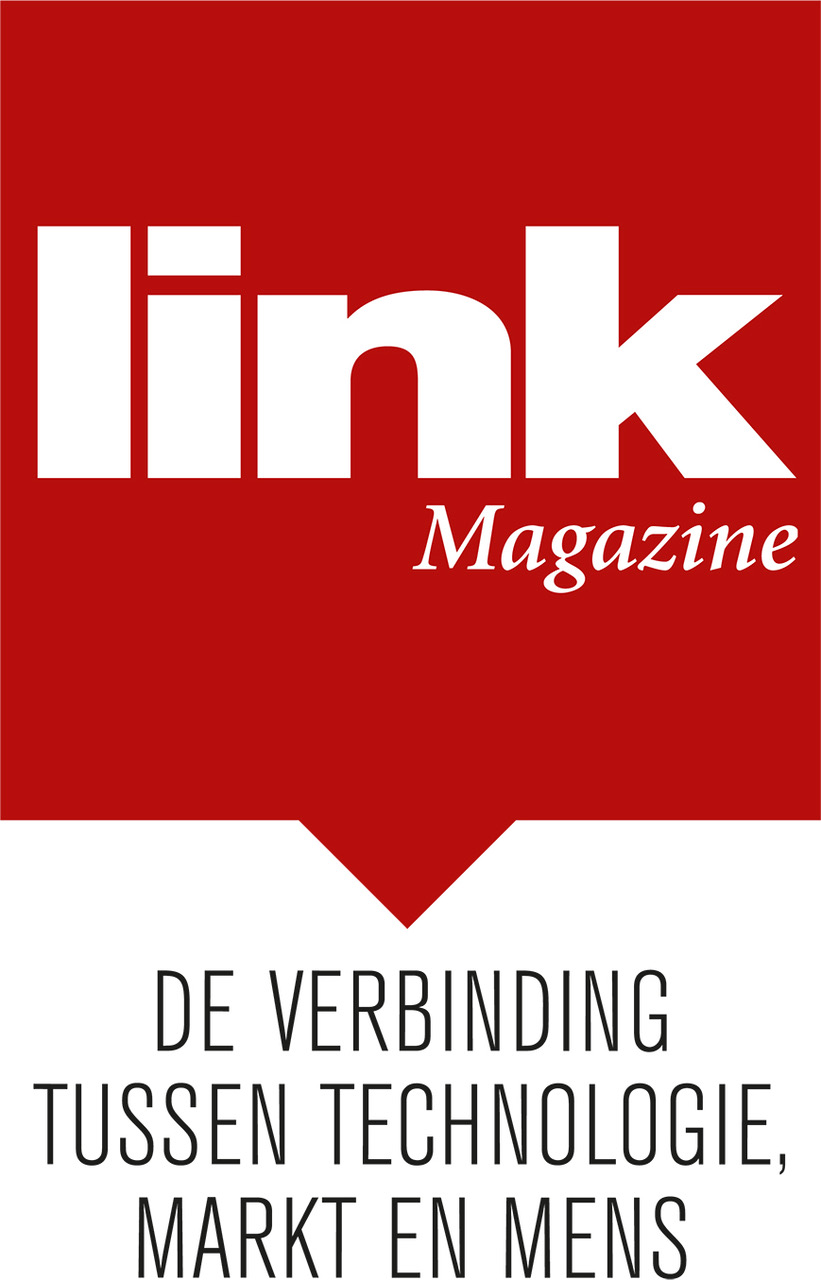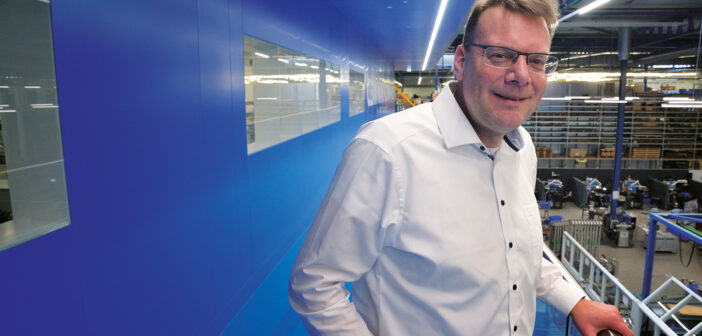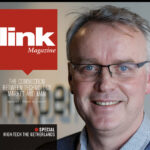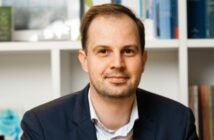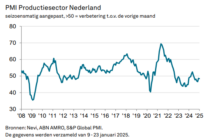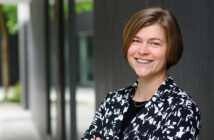The demands which ASML and its ecosystem make of ERIKS are pushing the Alkmaar-based company to an unprecedented level. The firm wants to streamline its approach to these kinds of highly challenging assignments. Theo Kok has been appointed for this task, as head of semicon. His team will bring together the various specialisms present within the company’s seven business units. In addition, a roadshow will be held to establish in which areas ERIKS differentiates itself for customers in semicon and adjacent, equally demanding markets. ‘We are going to showcase those activities more.’
‘Nowhere else are we challenged the way we are here’
The place where the wafer sits in an ASML chip machine is – naturally – subject to very exacting requirements. The silicon wafer must be positioned extremely stably and the material on which it rests, like all the other components in the vacuum, must emit no gas whatsoever. That, in brief, was the challenge which the Veldhoven-based company set ERIKS, whose specialisms include rubber compounds. Those compounds are used for seals (such as O-rings, moulded part and gaskets), but they are also extremely well suited to damping the vibrations generated in a machine. And ERIKS has OER compounds which scarcely emit hydrocarbons or water vapour. Moreover, it can produce those materials in specific forms with very narrow tolerances. But in ASML’s world, expressions like ‘extremely well suited’, ‘scarcely emit’ and ‘very narrow tolerances’ have a completely different connotation than in other parts of industry, even high-tech industry.
Demanding the ultimate
In Deventer, where ERIKS has concentrated its expertise in rubber materials in the Elastomer Research Testing laboratory, the firm boasts a range of unique devices. Each one had to be specially developed in order to achieve a solution for ASML. For instance, because the existing instruments were not capable of measuring the required dimensional tolerances, ERIKS partnered with measurement instrument specialist Mitutotyo to develop an optical instrument that can deliver that measuring accuracy. Especially for this purpose, equipment has also been developed that can very accurately predict the lifespan of the material. Using its most accurate analysis device, the Netherlands Organisation for Applied Scientific Research (TNO) was unable to measure any emissions. This meant ERIKS comfortably met the low values for gases demanded by ASML and that this type of rubber could be used in the heart of the ASML machine. The end result was the E-pin: nowadays, the wafers in the wafer handler rest on three of these pins. A successful solution that demanded the utmost from the experts at ERIKS and its partners.
Nowhere else is as challenging as here
The benefit being that it pushed ERIKS to an unprecedented level of performance. ‘We are a company with a global presence, but nowhere else are we challenged the way we are here in the Netherlands by ASML and its system suppliers’, reveals Theo Kok. At the time of writing, he has been working for ERIKS for just two months as head of semicon. But with previous roles at first-line ASML suppliers like Bronkhorst and Frencken, he is already fully immersed in the semicon world. ‘The Netherlands is an excellent place to keep on refining your technological expertise. The unique thing about ASML as a customer is that it also makes unprecedented demands in terms of quality, logistics, cost and sustainability. But we had to do the process development and production of the E-pin ourselves. We now have a very good idea of which questions we need to ask in order to be able to take the subsequent performance steps.’
Across business units
The E-pin is just one of hundreds of annual new product introductions (NPIs) from the ecosystem around Veldhoven that ERIKS grapples with annually. Driving turnover growth in the semicon segment that runs to ‘tens of percentage points’, says Kok. Until recently, depending on the most important technological challenges they involve, those NPIs were entrusted to one of ERIKS’ seven business units: Engineered Plastics, Flow Control, Gaskets, Industrial & Hydraulic Hoses, Power Transmission, Sealing & Polymer and Tools, Maintenance & Safety. At a certain point, the realisation dawned that they needed to streamline their operations. That task was handed to Theo Kok. He heads a team of six multidisciplinary engineers and project managers – although that number is set to grow. Working across business units, they direct the execution of the so-called ‘co-engineering’ assignments.
Bundling
Until now, the business units would generally serve those markets individually, each with its own focus. Yet underlying the initial customer requests are huge challenges that call for much more than just knowledge of plastics or motion control to solve. And which, besides technological knowledge, also demand world-class logistics expertise, quality, sustainability and cost control. In other words, all the qualifications which the letters QLTCS stand for in ASML’s outsourcing model. Bundling those is the role which has been given to Kok and his new team. ‘This will allow us to offer customers a multidisciplinary approach, uniformity in working methods and a single clear point of contact.’
Roadshow
Theo Kok was also given the task of applying the expertise acquired in assignments for ASML for other customers in semicon and adjacent, equally demanding markets like medical technology and analytics. ‘To this end, we made an inventory to establish exactly which areas we are unique in at ERIKS. We then identified products we believe have a good market potential. We put together a roadshow to showcase them which we are now taking out on the road, with the aim of establishing whether what we regard as relevant to the market is also viewed in that way by customers. Or to put it another way, whether what we plan to offer actually fits with their technology roadmaps. And while we may be making a difference to customers in terms of technology, we also need to make sure we can offer something very special in all other areas of QLTCS.’
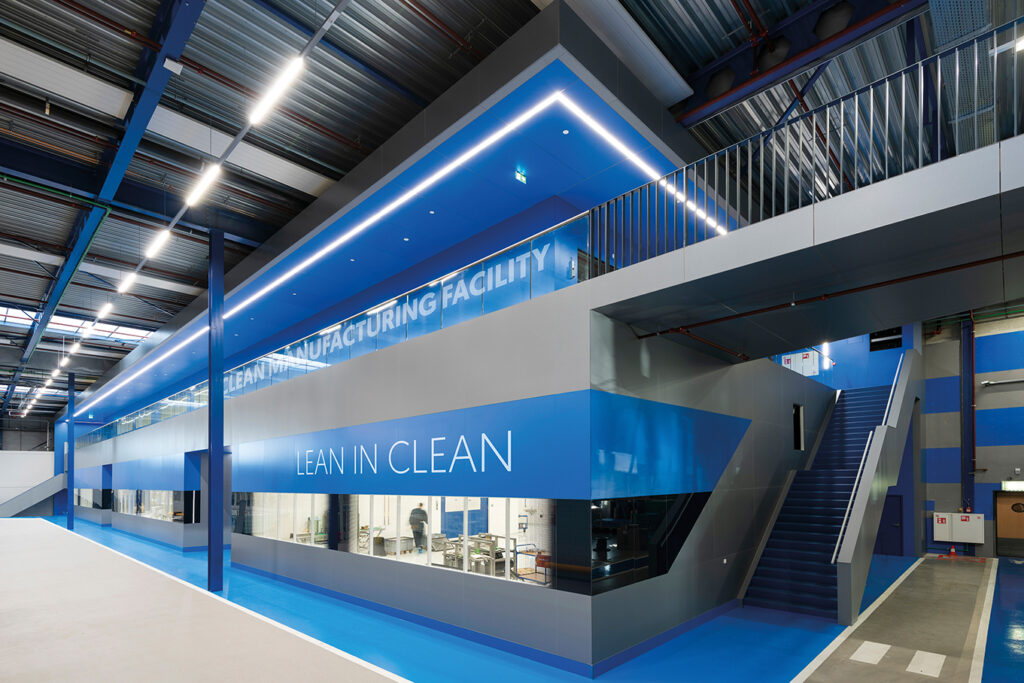
These days, ERIKS has 340 locations in 17 countries. Photo: ERIKS
Increased focus
That also requires increased focus. ‘ERIKS never says ‘no’,’ agrees Kok, confirming the sense you get immediately on entering the lobby of the head office in Alkmaar. It contains a series of display cases showing a wide range of products, from O-rings and gaskets to valves and hoses, executed in highly diverse materials and dimensions. ‘That attitude has made us very successful and enabled us to grow into a multinational business with a turnover of more than €1.5 billion. At the same time, the high-tech markets we operate in demand focus. No, we are not going to step away from particular technologies or markets, but we are going to showcase certain activities more – in any event Industrial & Hydraulic Hoses and Sealing & Polymer. These are two product groups for which we need to outsource relatively little, because we have virtually everything in-house: the technological knowhow but also facilities like a very large cleanroom, a laboratory and 3D printers, right through to production and assembly.’
Sharpening the profile
‘ERIKS’, says Theo Kok, ‘is a familiar name in industry, precisely due to our size and the breadth of our range – the fact that we offer catalogue and customized products as well as co-engineered solutions. The flipside is that we do not have a very clear profile when it comes to high-tech industry. We expect the roadshow and the feedback we receive to it from major customers to help us sharpen that profile, in order to establish which areas we are truly unique in.’
‘Our innovations prove themselves here first, in assignments for ASML and the ecosystem around it’
Naturally this needs to be extended to other countries in Europe, the US and Asia where ERIKS also has a presence. ‘The Netherlands is an excellent base for this. Our innovations prove themselves here first, in assignments for ASML and the ecosystem around it. We then take them to the European, US and Asian markets.’ Developing and manufacturing products for the most challenging customers worldwide calls for a lot of investment, in people and in resources. By sharpening our profile we will be able to reach more customers and upscale more quickly’, says Kok. His team currently consists of six people: ‘In three years time? I expect my team to be three times as big by then.’
Origins in ‘cheese city’ Alkmaar
ERIKS was founded over 80 years ago by Arie Eriks. These days, the company has 340 locations in 17 countries. In 2021, it had a turnover of €1.5 billion. Nearly a quarter of that is derived from the Netherlands, while the UK accounts for 20% and Germany and Switzerland together for 13%. The firm employs over 6,500 people and has 900,000 products in its range. Some 2.5 million shipments go out to its customers every year. Services, for example in the form of co-engineering, condition monitoring, inspection, vendor managed inventory and training in various areas also accounts for a significant proportion of turnover.
ERIKS has its head office in the city in which it was founded: Alkmaar, famous for its cheese market. The dairy industry remains one of the many markets in which the company is active: they range from semicon, machine and equipment building and the maritime sector to automotive, aviation and oil & gas.
In recent years, ERIKS has invested a lot of money in cleanrooms, a fully independent ISO 17025 accredited research and testing laboratory for rubber and 3D-printing technology.
